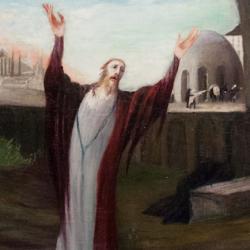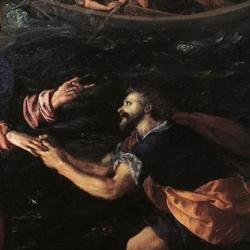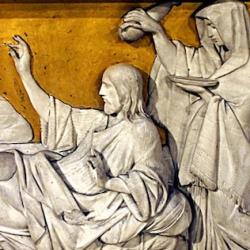INTRODUCTION
At the middle of Matthew’s story of Jesus, Peter confesses that Jesus is the Christ ( ). But he doesn’t yet understand what that means. He still has to learn that being Christ means taking up a cross and losing life to find it.
THE TEXT
“When Jesus came into the region of Caesarea Philippi, He asked His disciples, saying, ‘Who do men say that I, the Son of Man, am?’ So they said, ‘Some say John the Baptist, some Elijah, and others Jeremiah or one of the prophets.’ . . . ” (Matthew 16:13-28).
PETER THE POPE?
This passage is central for the Roman Catholic defense of the papacy, but the New Testament doesn’t support this. Jesus elsewhere promises all the apostles (even the whole church) the power to bind and loose (v. 19; cf. Matthew 18:18-29; John 20:19-23). Peter is promised these privileges as the chief of the apostolate, but all the apostles share the same privileges. Peter is very prominent early in Acts, but after chapter 12 he nearly drops out of the story. If he has a successor in Acts, it’s James the elder of
Some Protestants, reacting to Roman Catholics, claim that Jesus founded His church on Peter’s confession rather than Peter as a person. But Jesus’ pun (“ Petros ” is a “
Jesus is the Davidic “Son of the Living God” (Matthew ; cf. 2 Samuel ), a new Solomon building up His church as the palace and
Once Peter makes his confession, Jesus begins to disclose that His mission requires Him to suffer and die in











